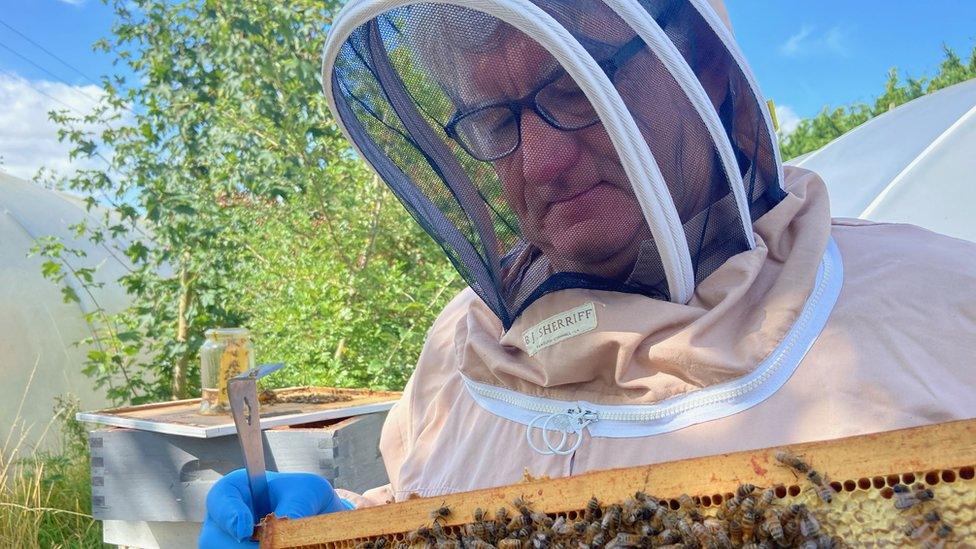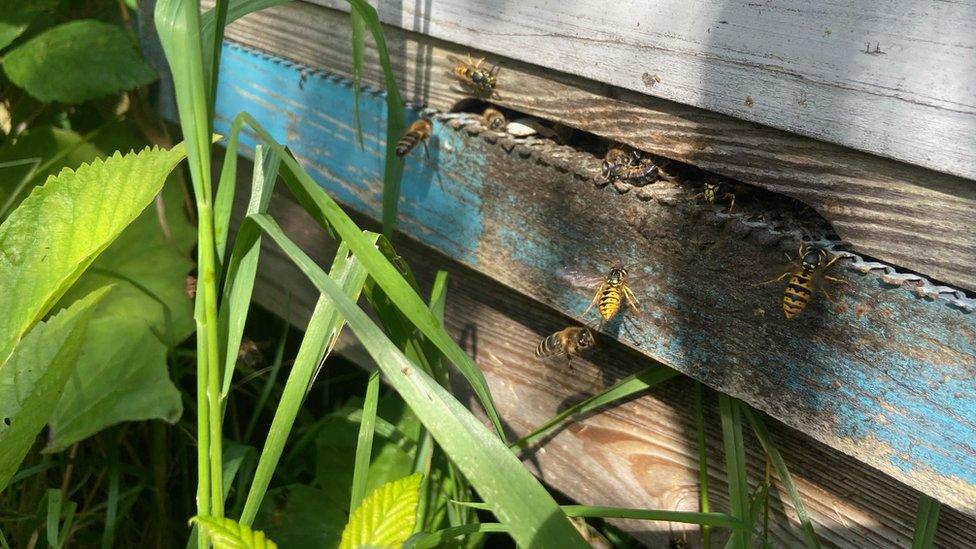Lincolnshire: Beekeeper's concern over wasp numbers
- Published

Simon Croson said wasps can quickly inundate a hive
A beekeeper from Lincolnshire has said he has lost about a third of his bees in one colony to wasps.
Simon Croson, from Fulbeck, said weather conditions had meant a larger than usual number of wasps.
Wasps will attack hives to source honey for food especially during the latter part of the summer.
The British Beekeepers Association said it did not record statistics on wasp numbers, but said members had reported an increase.
"A combination of a mild autumn and winter last year which resulted in more queen wasps surviving through the winter," he explained.
That, he said, means even more queens emerging from hibernation to create nests.
"Which will give rise to all the hundreds of thousands of wasps being reported across the county and country."
Wasps will attack bees and hives to source food especially when their colonies have grown too large and other food sources begin to run low.
He said wasps did have value because they kill insects and bugs that posed a threat to fruit and vegetables.
"Without them our supermarket shelves would look very different," he said.

Wasps attack hives when other food sources start to run low
Mr Croson is less enthusiastic about the wasps later in the summer.
"At this time of the year the wasp diet is more often than not the sweet stuff and honey is in such abundance."
"If a wasp gets into a hive it can quickly become inundated," Mr Croson said.
He said the attacks on his hives would mean a drop in the amount of honey he would be able to produce this year.
"On one of my sites I lost a huge percentage, about 30%. If you were running a factory and lost 30% of your workforce you'd have big problems.
"It has been a common story right across the country.
"We just have to try and overcome it."

Follow BBC East Yorkshire and Lincolnshire on Facebook, external, Twitter, external, and Instagram, external. Send your story ideas to yorkslincs.news@bbc.co.uk, external.